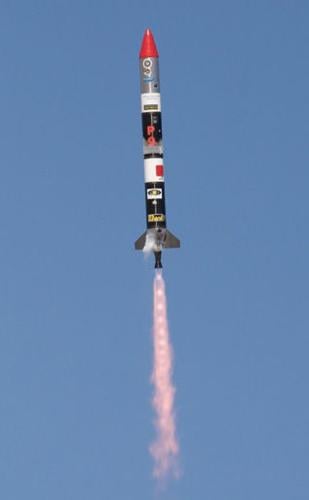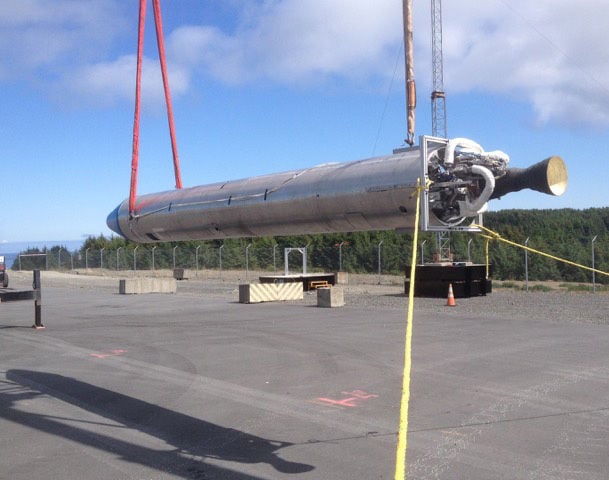Vector Space Systems plans to open a Tucson headquarters and manufacturing plant to make rockets for launching small satellites into space.
The Tucson-based company is expected to create 200 jobs locally within three years of beginning operations, at an average annual salary of $70,000. It could employ as many as 500 people within five years as production ramps up, said its co-founder and CEO, Jim Cantrell.
Vector plans to invest roughly $19 million during the first three years, and possibly as much as $50 million over the next 15 years, according to Pima County officials. The total direct economic impact of the facility could be $290 million over five years, says an analysis by Phoenix-based Applied Economics completed for Sun Corridor Inc., the local economic-development agency.
The company plans to build 36,000 square feet of office space and another 40,000 square feet for manufacturing south of Tucson International Airport.
The business of getting small satellites, some as small as “loaves of bread,” into space is one set for significant growth in coming years, Cantrell said.
About 175 such satellites were launched last year, a number that is projected to rise 800 by 2020, and getting them to space is projected to become a multibillion-dollar business. Cantrell thinks Vector “can grab a good chunk of that.”
His company plans to build about 100 rockets annually at first and to increase from there. Eventually the company intends to manufacture its own satellites as well, he added. Launches will take place in California, Alaska and Florida, not locally.
Citing several examples of their application, Cantrell said micro-satellites have been used by Google to take images of the Earth’s surface and by researchers and forecasters to study the atmosphere.
“Until now there hasn’t been infrastructure to support that, yet that is where innovation is occurring,” Cantrell said of micro-satellites.
Vector started in 2015, secured $1 million of capital from “angel investors” earlier this year and is “currently closing” on up to an additional $1.5 million, which “will be used to fund operations and prototype development during the last quarter of 2016 and into 2017,” says a letter the company sent to County Administrator Chuck Huckelberry on Oct. 6.
The company has $2.5 million in contracts and revenue so far in 2016 and has signed contracts worth around $160 million for launches once the plant starts producing rockets, according to Cantrell and the letter.
The manufacturing plant and headquarters would be located in the county’s Aerospace, Defense and Technology Business and Research Park, which is also the home of World View, a company that makes balloons for space tourism and research. The 15-acre site is near the intersection of Old Nogales Highway and Old Vail Road and was part of land originally purchased to provide a buffer for nearby Raytheon Missile Systems.
The plant is expected to be operational by 2018.
Unlike the World View deal, the county does not currently intend to build any facilities on behalf of the company and recoup the costs over the course of a lease arrangement, Huckelberry said. Rather, Vector is interested in a “market rate” ground lease of the county-owned land, he said, a point echoed by Cantrell. Such a lease would need the approval of the Board of Supervisors.
Huckelberry did say the county “will explore” the possibility of building on behalf of the company, but added that “they’re not even asking for that for now.” Additionally, if such a deal were struck, the company would pay back the county’s development costs through “straight-line amortization” instead of the steadily increasing payments that are a part of the World View deal, he said.
Training and workforce development will be the principal incentives the county offers Vector, Huckelberry said. The company is also eligible to apply for state income-tax credits for qualified facilities and for workforce development grants, said an Arizona Commerce Authority spokeswoman.
County Supervisor Ally Miller, who has been a vocal critic of the World View deal and county use of incentives for economic development, did not return calls seeking comment Wednesday.
Supervisor Ramon Valadez, whose district includes the proposed site, said, “It’s great that this one came to fruition, and I’m very excited for the future of our community,” adding that there are other “projects in the pipe.”
He also said, “There is less room for politically motivated questions” with this deal, in response to a question about criticisms raised by Miller and others.





